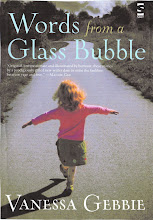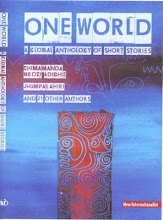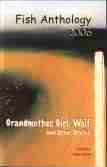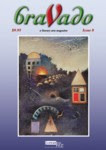The US academic community seems to have a clear sense of what it is. Here is the advice to students from one university, the University of Indiana, taken from their website, HERE. I thought this was very clear, and very helpful. Although it is obviously an academic context, this definition appears to be applicable to creative writing too. I post it because it mentions not just words, but ideas.

Plagiarism. What it is and how to avoid it.
What is Plagiarism and Why is it Important?
In college courses, we are continually engaged with other people’s ideas: we read them in texts, hear them in lecture, discuss them in class, and incorporate them into our own writing. As a result, it is very important that we give credit where it is due. Plagiarism is using others’ ideas and words without clearly acknowledging the source of that information.
How Can Students Avoid Plagiarism?
To avoid plagiarism, you must give credit whenever you use
* another person’s idea, opinion, or theory;
* any facts, statistics, graphs, drawings—any pieces of information—that are not common knowledge;
* quotations of another person’s actual spoken or written words; or
* paraphrase of another person’s spoken or written words.
In addition, a quick look at an online guide to avoiding plagiarism for creative writing students at Lancaster University, turns up this:
You are committing plagiarism if you copy without acknowledgement:
• an idea;
I highlight areas of interest to creative writers.
.Little burglar-person from HERE




.JPG)























9 comments:
This is very interesting to all writers Vanessa.
I can imagine how distressing it would be to discover that a story I had written had been published in someone else's name. Personally, I believe that once one is at a certain level as a writer it is inspiration that counts for some success. I know I can write, I know lots of others can write. What I have to search for therefore, is how to make my stories shine and sparkle. One does this by coming up with fresh ideas, unusual images, or jump off points. One tries to be unique and in that way be able to showcase the writing. To have an idea stolen, or an image, a setting out of work, a central part, is something that appals me.
If I write a story about a woman called Jane who eats bananas and talks to a toad and then discover another writer has subsequently written a story about a woman called Jan who eats apples and talks to a frog is that okay?
I would say NO, it is theft, it is wrong, it should not be allowed. I would name and shame anyone who fucked with me and my work in that way.
I'll tell you what plagiarism is, Vanessa: it's theft, and fraud, and cheating, and people who plagiarise have no respect whatsoever for writers. It's a vile thing.
As you can probably tell, I really don't like plagiarism, or the people who do it, at all. And guess what? Neither does the law. My agent has, on my behalf, sued three major publications for plagiarising my work: each time we won, and I was paid damages of tens of thousands of pounds (out of which my agent got her fifteen per cent, obviously!). Which came in very handy.
There are so many people who don't understand the law on this: they seem to think that work on the internet is somehow in "the public domain", and therefore somehow up for grabs, which isn't the case at all. I've already succeeded in getting three websites closed down because they copied work from my HPRW blog; and I have Google Alerts set up to notify me every time any of my work is mentioned online. I'll continue to take the strongest possible action against anyone who plagiarises my work, and I'd urge everyone else to do the same.
Jane, that is hopeful news. I'm sorry you had to go through the hassle, but delighted that you came out with some compensation.
The definitions of plagiarism are unclear... at least... they seem to get confused with breach of copywrite. I think!
As I said in my blog post, there is ample advice to students not to use the ideas of others without due credit. Plagiarism seems to be more comlex a matter than straight lifting of words.
Please excuse typing! It is 1.30 am. have just returned from a totally plagiarism-free night out on the town, at Selena Godden's Book Club Boutique!
Hi Vanessa,
These are great resources, thanks for tracking them down.
It's all very contentious, this plagiarism stuff. I too have had ideas ripped off - I wonder how many people haven't? It's true that you can't copyright ideas, and people always fall back on this as a defence, and I guess you'd need damn good lawyers like Jane's to prove it for you. But it's great to have these guidelines to refer people to!
But plagiarism and breach of copywrite are separate things....
I am emailing you!!
Vanessa wrote, "I have however, had elements of my work copied.... That story of his has just been commended in a competition, and will be published.... I tried to get the story pulled, but apparently, unless my words were lifted verbatim (which they weren't) the competition did not consider what the writer had done to be wrong."Vanessa, I do wonder: if the copying is as blatant as you've suggested (and I'm not doubting you here, just trying to remain impartial), then it seems to me that the competition organiser has got this wrong: while ideas can't be copyrighted, and while a verbatim reproduction of your work would be plagiarism, there are shades of grey between those two extremes: for example, if you wrote a short story which had a very distinctive structure and plot, which someone then reproduced in his own short story, that would be plagiarism even if the second writer re-wrote the piece entirely. You might be wise to speak with your agent about this, if you feel able.
Consider the subject of this blog-post of mine: her writing counts as plagiarism (as does all fan-fiction) because it relies on someone else's creation (in this case, Stephenie Mayer's Twilight). So, if someone were to take a world you created (and that world can be novel and huge, like Tolkien's orc-ridden spraw, or tiny and ordinary, such as the more transitory, rooted-in-normal world that is created in a good short story) and wrote a story contained within it, or which used elements that you had created, then they'd be in trouble. If your original piece relied on non-sepcific archetypes then you'd not have a leg to stand on; but if it described specific and original creations, then yep, I'd say there's a clear case of infringement going on there.
For example, I have a small blog called Greyling Bay, which is a collaborative fiction piece. The fact that it's a collaboration might lead people to think that the rules of copyright and plagiarism are blurred there, but that's not the case. Anyone is welcome to use the characters and places on show there, write a piece and submit it to me for publication. If they then want to take their own characters and write about them elsewhere, that would be fine (although I'd appreciate being notified if they do, if only so that I can post a link to it from GB): but if they were to use the place of Greyling Bay, or any of the characters, settings or situations created for it by anyone else, write about them, and publish them elsewhere then they'd be in trouble. Of course, if they asked me for permission to do so I'd probably agree to it, and get other rights-holders to do the same where appropriate: but if they did it without my permission, that would not be acceptable and I could see them getting into real trouble about it, too.
(By the way, I want to know how Sara knows that I eat so many bananas; and I've just ordered Elizabeth Baines' book from Salt, and am looking forward to reading it immensely.)
I want to echo everything has been said here. Sadly, there is no way for us to set up Google Alerts for our concepts, as Sara said - we can't set up an alert for "frogs and bananas" and catch the "apples and toads". And I know this isn't an Internet issue, the Internet just makes it far easier.
I guess all we can do, and what some of us plan to do, is increase awareness of this, not with the aim of catching the plagiariser, but to ensure that none of us, or any writer with ethical and moral standards, unwittingly becomes a plagiariser. More thoughts on this always welcome.
Post a Comment